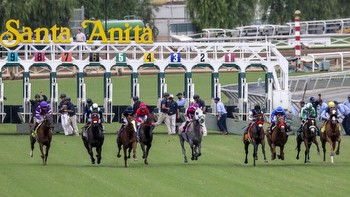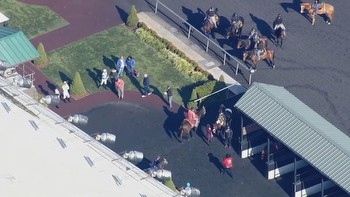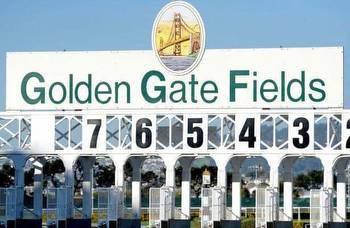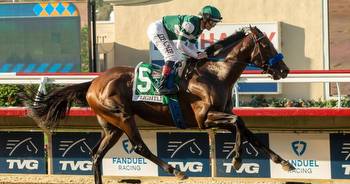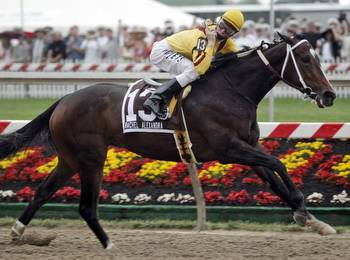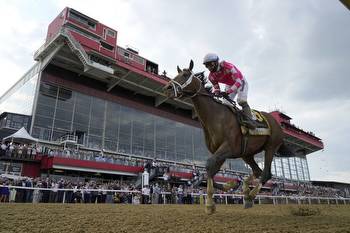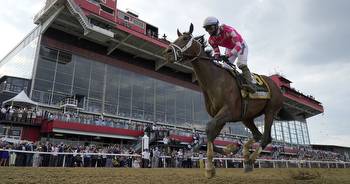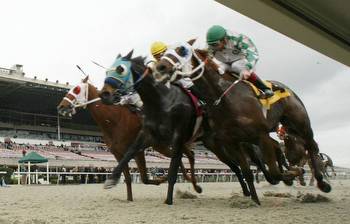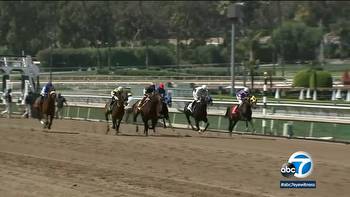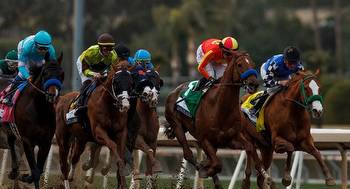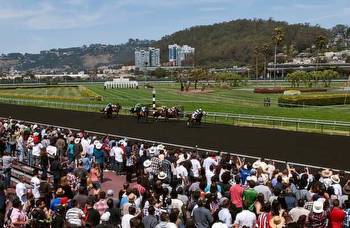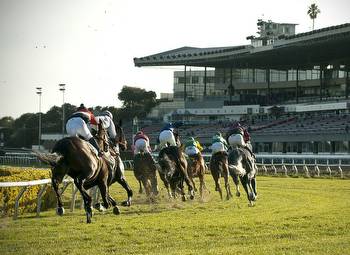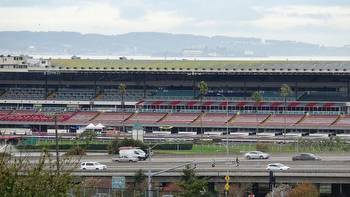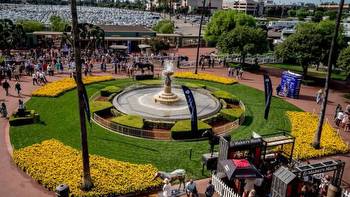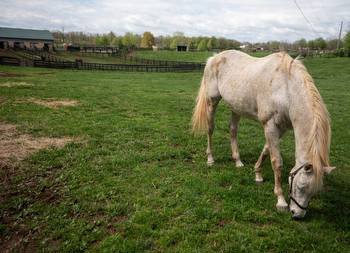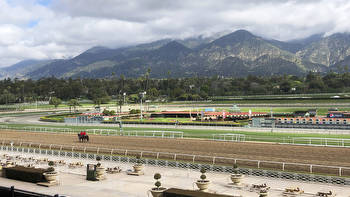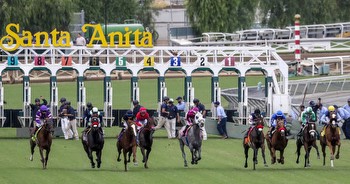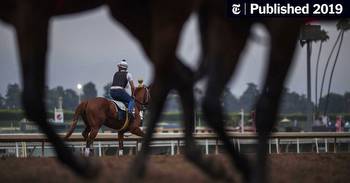Acclaimed Author Not Upset By Golden Gate Fields' Demise
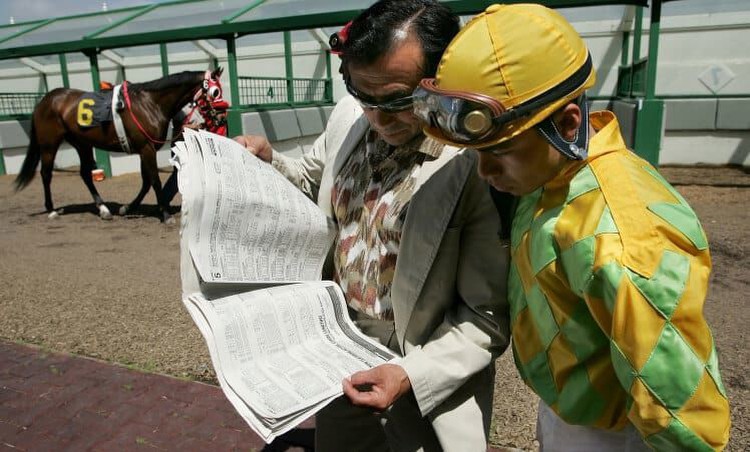
When the Stronach Group (aka 1/ST) announced last month that it would be shuttering Golden Gate Fields after the current meet, I immediately thought of Bill Barich.
Barich is a former New Yorker staff writer and the author of numerous books, including Laughing in the Hills, undoubtedly one of the greatest ever written about the sport of horse racing. Grieving the death of his mother, Barich checked into a motel near Golden Gate Fields in 1978 and committed to visiting — and wagering at — the hardscrabble Bay Area track almost every day, mingling with its regular bettors, jockeys, trainers, grooms, and thoroughbreds.
The connection between human and horse is the book’s most profound through line, one that helped Miami New TimesTom Finkel process the death of his own mother several years ago.
“I just remember going back to that book after my mother died because so much of that book is tied up in the general aspect of everything,” Finkel told US Bets. “I went back to that book as a kind of refuge. It was a really emotional time for me. That book and his connection to the larger aspects of life that are metaphorically wrapped up with this beauty and purity that existed in horses helped me get through that time.
“He centered the creatures in that book. And that’s the beauty of that book — it’s about the horses.”
My natural assumption was that Barich, who now lives in Ireland, would be dismayed by Golden Gate’s imminent closure. The 82-year-old track, the last remaining in Northern California, helped launch his illustrious career, and sentiments such as those expressed by Alan Balch, executive director of California Thoroughbred Trainers, were bound to pull at a heartstring or two.
“The ramifications of this Stronach decision will be far-reaching and long-lasting,” Balch said in a statement. “They will include, we believe, a great many unintended and mainly detrimental consequences for all of racing and thoroughbred breeding throughout California and the West, including in Southern California. We can only hope that we are entirely wrong.”
But Barich’s response reminded me of an important journalistic tenet: Never assume anything.
‘The bane of the industry’
In explaining her company’s decision to close Golden Gate, Stronach Group CEO Belinda Stronach said it would work to relocate the track’s employees, stable workers, and trainers to Southern California, where it owns Santa Anita Park in suburban Los Angeles.
The Stronach Group’s overarching goal is to increase field sizes and the amount of racing dates at Santa Anita. Del Mar and Los Alamitos, the latter of which just announced a $1 million facelift, are rival tracks in the general vicinity.
“There’s no reason to mourn the loss of Golden Gate Fields unless you’re feeling nostalgic,” Barich wrote in an email to US Bets. “The racing has been second-rate for years, and though it’s tough on trainers and jocks to lose their livelihood, they rely on horses that aren’t any good and in some cases shouldn’t be running at all.
“GGF and tracks like it are the bane of the industry, bringing down the quality of the sport and, I think, eventually leading to its demise. The business model doesn’t work. At second- and third-tier tracks, it’s all about the gambling dollar and rounding up enough horses, no matter how bad they are or how drugged they have to be, to create the large fields that lead to huge payouts on the exotics.
“Quality racing is already a dying breed, and it exists only sporadically at a handful of tracks. The longer that continues, the more it will drive away the fans who care about horses more than cashing a Pick Six ticket.As the horse becomes ever more incidental to racing, it saps the sport of its vitality.Tracks need to cut back on the number of races and racing days and ban the use of drugs if they hope to survive.”
Upon viewing Barich’s remarks, Finkel said, “It’s sad, but he’s completely right. The first impulse is to think they are kind of bitterness, but it comes from a place where our racing culture has killed this incredibly noble aspect of human-animal relationships. We’ve completely just wiped that out. We’ve turned it into a completely commercial enterprise.”
Non-human creatures
Finkel’s stint at Miami New Times is his second at the paper. The first came as a staff writer and managing editor in the 1990s, back when there was no online horse betting and he would visit Gulfstream Park on a weekly basis, accompanied by the likes of the renowned photographer Henry Horenstein.
“It was such a feeling of being in that world,” recalled Finkel. “It was before internet communication and all that s**t, so it was a very analog world still.”
As a child, Finkel would ride horses during summer trips to Vermont. His father, a poet of some acclaim, once published a collection of his work titled What Manner of Beast, which, according to his son, “was almost all poems about non-human creatures.”
“The relationship between human beings and other creatures, coming back to Miami, where there’s so much wildlife that we have driven to where they have to be close to us, just noticing how much more attentive all these creatures are to us, they’re very much aware of us,” said Finkel, who then shared that he wished he “spoke dog” so he could verbally communicate with his pet canine.

